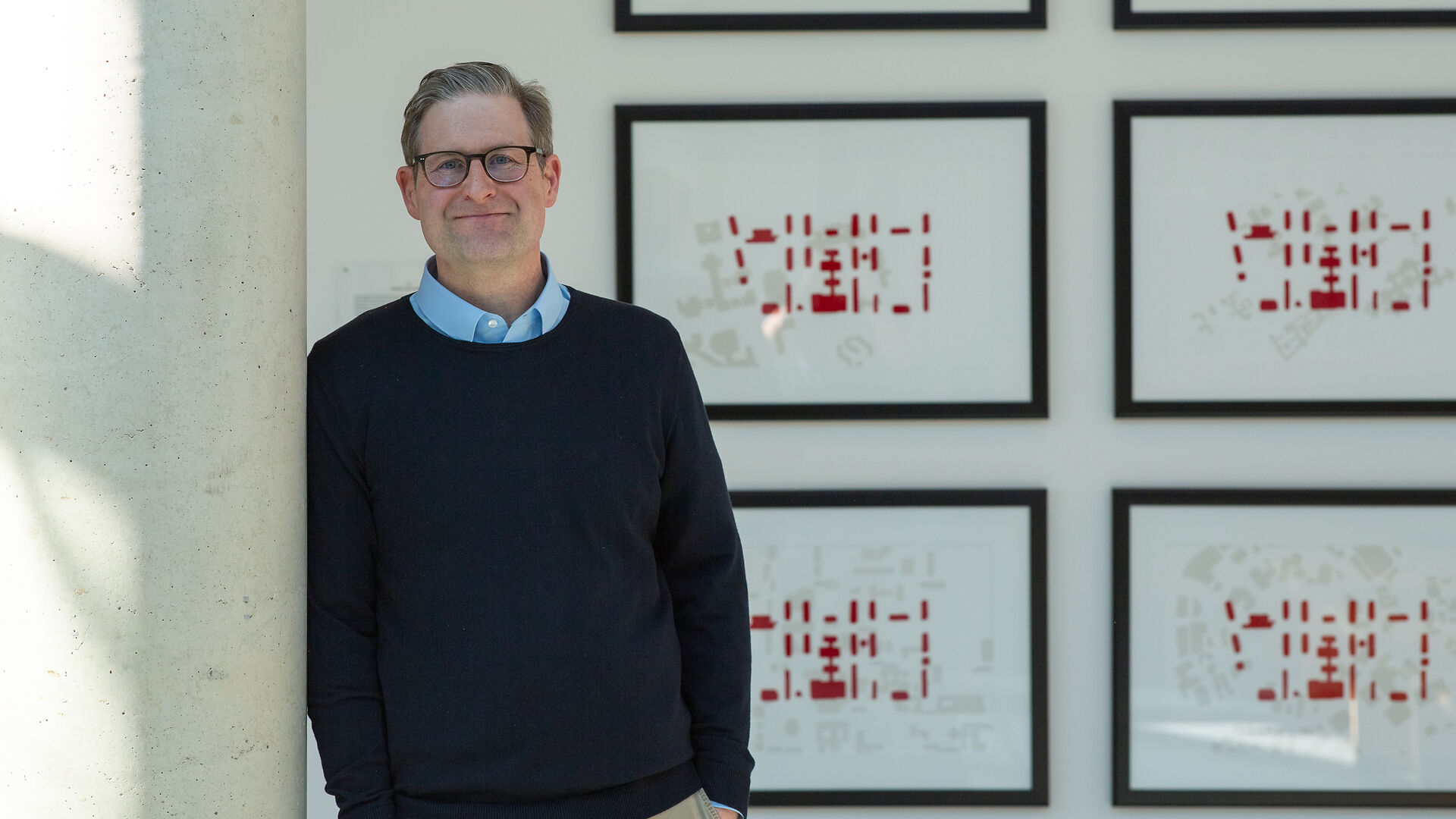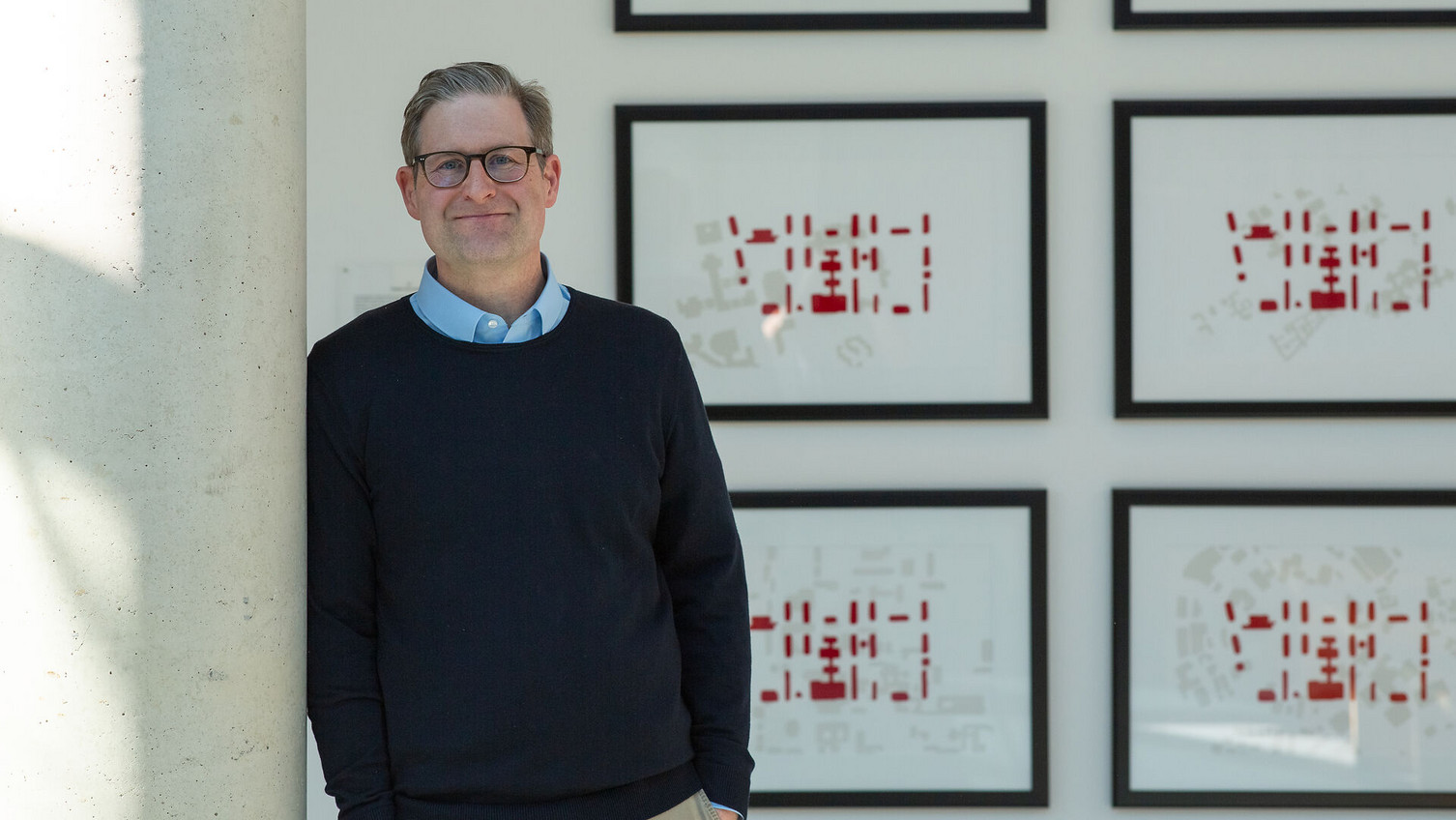 ©Leuphana
©Leuphana
New at Leuphana: Prof. Dr. Stefan Klingbeil, LL.M. (Yale) — The Magic of Law
2025-10-22 The world of law is neither a gray realm of paragraphs nor a dry bureaucratic desert. Rather, it is a wondrous space filled with magic and imagination. We spoke with the newly appointed Professor of Civil Law, Civil Procedure, and Legal Theory about the unique way lawyers perceive reality.
Professor Klingbeil, a brief question to begin with: Who am I?
A very difficult opening question. But allow me to answer as a legal scholar — that makes it somewhat easier. From the perspective of jurisprudence, you are a legal person. By this we mean a bearer of rights and obligations who inhabits a legal body and develops legal personality over the course of a legal life. We refer to human beings as natural legal persons, but on closer inspection, they are just as artificial as so-called juridical persons — such as associations, corporations, or public bodies. In other words, all legal persons are creations of law, brought into being through the legal discourse that unfolds in the language of law.
So, I don’t exist in law beforehand?
At least not as a legal person. You come into existence as such only when the legal system calls you into being through a juridical act of personification. But that does not mean that you exist merely in the minds of lawyers. Rather, the medium through which legal persons exist is the language of law itself — and through that language, the entire legal world comes into being. We should therefore understand the world of law as a distinct plane of existence within our shared reality. It has, so to speak, the ontological status of a World 3 in Karl Popper’s sense: an intellectual world with an artificial, virtual character — and yet it is real. And precisely because the legal world is a linguistic artificial creation, wondrous things can happen within it.
Where does the magic of law reveal itself?
When you look through the lens of law, it becomes visible in many places. Take an everyday example: You want your wall painted, so you hire master painter B, who sends his journeyman A to do the job. When A arrives at your apartment, he takes up the brush and begins painting the wall. But what does this scene look like through the eyes of the law? For jurists, the journeyman A is what we call an agent of performance — someone who represents the master painter in fulfilling contractual obligations. In legal terms, that means A makes B present at the site of performance. Legally speaking, the master painter B is therefore in the very same room as A, hovering, as it were, above him.
But in everyday life, the master might be somewhere else entirely — perhaps sitting at home, having tea and writing invoices.
Indeed. And this very paradox reveals the magical core principle of representation: no matter where the master happens to be in the real world, for the purposes of legal consideration, he is also present wherever his representative acts. In other words, within the world of law, one can multiply oneself to be in several places at once. But the magic does not stop there. If we slow the scene down in legal slow motion, we can observe how the brush passes from the hand of the journeyman A to that of the master B. As A moves his hand to paint, B’s hand, holding the same brush, performs the very same movement in the next legal instant. We therefore attribute both possession of the brush and the act of painting to the master.
So, the actions of the journeyman become those of the master?
Exactly. This shift of attribution means that, in the eyes of the law, it is ultimately the master painter who has painted the wall and thus fulfilled his contractual duty to you. And if the journeyman, through carelessness, knocks over one of your vases, we also attribute that negligent behavior to the master. He is therefore liable to you for the resulting damage under contractual principles. This is a legal construct that today’s jurists employ with technical ease — yet its enchanting nature is seldom emphasized. After all, when it comes to legal representation, it is quite fitting that we often and rightfully speak of a juridical miracle.
Should lawyers think more in images?
The most important tool of modern jurisprudence remains the language of law — a topic on which much has been said and written. Yet only rarely has anyone tried to link the insight that law speaks its own language with the philosophical notion of language as world-creating. Doing so opens an entirely new perspective: it reveals that through legal language, we generate a virtual and artificial world — invisible to the senses but vividly shaped in the jurist’s mind. And this is precisely where thinking in legal images — that is, the capacity for juridical imagination — becomes essential. Lawyers must be able to perceive, before their inner eye, the architecture of the invisible in order to grasp legal processes accurately. Thus, thinking in images should complement the language of law, serving as a kind of screen for its linguistic code.
And how can one cultivate this legal imagination?
In my courses, I like to use legal visualization as a methodological tool for making the invisible visible. When discussing case examples, I often create juridical drawings that illustrate legal elements and structures. This makes it much easier to imagine the complex processes that take place in the legal world. My impression is that many students find this visual mode of legal thought quite helpful for understanding intricate legal constructions. My seminar “Law, Imagination, and Reality” also explores the world of legal imagination. We examine, for instance, the medieval doctrine of the king’s two bodies, the fairy tale The Emperor’s New Clothes, and the iconic frontispiece of Hobbes’s Leviathan. All of this helps cultivate a jurist’s imaginative faculties.
Why did you choose Leuphana?
I find it tremendously appealing to help shape the future of legal education within our innovative Master of Laws program here in Lüneburg. The spirit of renewal is palpable every day within the young faculty of the Law School. The campus itself is a vibrant place of personal encounter, where interdisciplinary exchange is a living culture. And we are fortunate to have highly motivated, intellectually curious students — which makes teaching and research at Leuphana a true pleasure.
Stefan Klingbeil studied law at the Albert-Ludwigs-University Freiburg and completed his legal clerkship at the Higher Regional Court of Hamburg. He earned his LL.M. at Yale Law School and received his doctorate in 2017. In 2023, he completed his habilitation at Goethe University Frankfurt, under the supervision of Prof. Dr. Felix Maultzsch, LL.M. (NYU), with a thesis on the interplay between private and procedural law. He was awarded the venia legendi for Civil Law, German and European Civil Procedure, Legal Theory, and Comparative Law. After holding interim professorships in Lüneburg and Frankfurt, he was appointed Professor of Civil Law and Civil Procedure at Leuphana University of Lüneburg in October 2024. In January 2025, he declined an offer for a W3 Professorship in Civil Law and Civil Procedure at Ruhr University Bochum.

